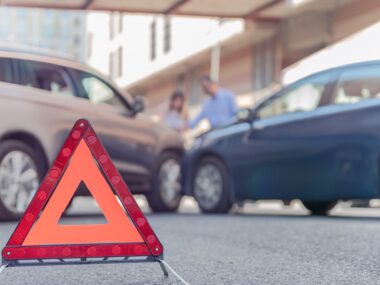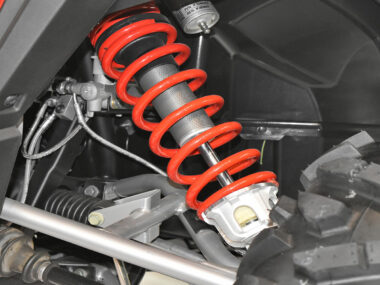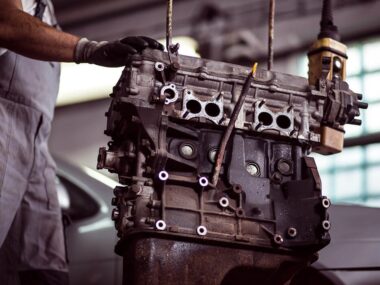Collision Insurance Explained
When it comes to protecting your vehicle, collision insurance is a term that often comes up, but many drivers still find themselves puzzled by what it truly entails.
If you’re in the market for auto insurance or just want to better understand your current policy, getting a clear grasp of collision insurance is crucial. Let’s dive deep into how this coverage works, its types, what it covers, what it doesn’t cover and weigh its pros and cons.
At its core, collision insurance is a type of auto insurance designed to cover damages to your vehicle after an accident, regardless of who is at fault. Imagine you’re driving along, minding your business and suddenly another car slams into yours.
Without collision insurance, you might find yourself footing the bill for expensive repairs or even a total loss.
How Collision Insurance Works
The mechanics of collision insurance are straightforward yet crucial for understanding your coverage. When you get into an accident, you file a claim with your insurance company.
Your collision insurance will then cover the costs of repairing your vehicle or if it’s beyond repair, the actual cash value (ACV) of your car, minus your deductible.
Here’s how the process typically unfolds:
- File a Claim: After an accident, report the incident to your insurance company and file a claim.
- Assessment: The insurer will send an adjuster to assess the damage to your vehicle.
- Repair or Replacement: Based on the assessment, your insurer will either approve repairs or declare the car a total loss. They’ll then either pay for repairs or provide you with the ACV of the car.
- Deductible: You’ll need to pay your deductible amount before the insurance coverage kicks in.
Types of Collision Insurance
While the term collision insurance might sound like a one-size-fits-all solution, it can vary based on the insurer and the specifics of the policy.
Here’s a rundown of the typical types:
- Standard Collision Coverage: This is the basic form of collision insurance that covers damage to your car resulting from a collision, whether with another vehicle or an object like a tree or guardrail.
- Comprehensive Collision Coverage: Sometimes, insurers offer packages that bundle collision insurance with comprehensive coverage. This type provides broader protection, including against theft, vandalism and natural disasters.
- Full Coverage Packages: Some policies include collision insurance as part of a full coverage package that combines liability, comprehensive and sometimes uninsured motorist protection.
What Collision Insurance Covers
Understanding what collision insurance covers is crucial for making informed decisions about your auto insurance policy.
Here’s a detailed look:
- Vehicle Repairs: If you’re in an accident and your vehicle is damaged, collision insurance will pay for the repairs. For instance, if your car’s fender gets smashed in a fender-bender, your policy will cover the repair costs after your deductible.
- Total Loss: If your car is deemed a total loss-meaning the cost to repair it exceeds its value-collision insurance will cover the ACV of your vehicle, minus your deductible.
- Hit-and-Run Incidents: If you’re involved in a hit-and-run, your collision insurance will still cover the damage, even though the other driver is unknown.
What Collision Insurance Does Not Cover
While collision insurance is robust, it’s not a catch-all solution. Here’s what it doesn’t cover:
- Medical Expenses: Collision insurance doesn’t cover injuries or medical expenses. For this, you’ll need medical payments coverage or personal injury protection (PIP).
- Vehicle Theft or Vandalism: Damage from theft or vandalism is not covered under collision insurance. For such instances, you’d need comprehensive insurance.
- Non-Collision Related Damage: Any damage not related to a collision, such as weather-related damage or mechanical failures, won’t be covered.
- Liability Costs: Collision insurance doesn’t cover damages to other vehicles or property, nor does it cover legal fees or settlements if you’re at fault. That’s where liability insurance comes into play.
Pros and Cons of Collision Insurance
Like any insurance coverage, collision insurance comes with its own set of advantages and disadvantages.
Let’s break them down:
Pros
- Peace of Mind: The biggest advantage of collision insurance is the peace of mind it provides. Knowing that you won’t be left with a hefty repair bill or a total loss after an accident is invaluable.
- Financial Protection: Without collision insurance, repair costs can be exorbitant. This coverage ensures you’re financially protected against costly damages.
- Loan or Lease Requirements: If you’re leasing or financing your car, your lender or leaseholder often requires collision insurance. It protects their investment in the vehicle.
Cons
- Deductibles: One downside is the deductible you’ll need to pay out of pocket before your insurance kicks in. This can be a financial burden, especially if your deductible is high.
- Cost of Premiums: Adding collision insurance to your policy can increase your monthly premiums. Depending on your driving habits and risk factors, this could be a significant expense.
- Not Always Necessary: If you drive an older vehicle with a low value, the cost of collision insurance might not be worth it compared to the potential payout.
Making the Right Choice
Choosing whether to include collision insurance in your auto insurance policy involves evaluating your personal needs, driving habits and financial situation. If you have a new or valuable car or if you’re required by a lender, collision insurance can offer essential protection. However, for older vehicles with lower values, it might be worth weighing the costs and benefits before deciding.
In conclusion, collision insurance is a vital component of many drivers’ auto insurance policies. It offers financial protection and peace of mind, especially if you find yourself involved in an accident. By understanding what it covers, what it doesn’t and evaluating the pros and cons, you can make a more informed decision about whether it’s the right choice for you.
Whether you’re navigating through the complexities of a new policy or reassessing your current coverage, knowledge is your best tool in ensuring you’re well-protected on the road.
Frequently Asked Questions
Do I need collision insurance?
Whether you need collision insurance depends on factors like the value of your vehicle, your financial situation and if your car is leased or financed. It’s often required by lenders or lease agreements.
What does collision insurance cover?
Collision insurance covers the cost of repairing your vehicle or its replacement value if it’s deemed a total loss after an accident. This includes collisions with other vehicles or stationary objects.
What doesn’t collision insurance cover?
Collision insurance does not cover medical expenses, damage from theft or vandalism or non-collision related damages like weather-related incidents or mechanical failures.
How does collision insurance work?
After an accident, you file a claim with your insurance company. The insurer assesses the damage, covers repair costs or replacement value (minus your deductible) and you pay your deductible out of pocket.
What is a deductible in collision insurance?
A deductible is the amount you must pay out of pocket before your collision insurance coverage kicks in. For example, if you have a $500 deductible and your repairs cost $2,000, you pay $500 and your insurer covers the remaining $1,500.
How much does collision insurance cost?
The cost of collision insurance varies based on factors like the value of your car, your driving history, location and the deductible amount. Generally, higher-value vehicles and lower deductibles lead to higher premiums.
Can I add collision insurance to my existing policy?
Yes, you can add collision insurance to your existing auto insurance policy. Contact your insurer to discuss your options and adjust your coverage.
Is collision insurance worth it for older vehicles?
For older vehicles with low market value, the cost of collision insurance might outweigh the potential benefit. Evaluate your car’s value and repair costs to determine if it’s worth including collision coverage.
How does collision insurance differ from comprehensive insurance?
While collision insurance covers damage from accidents involving other vehicles or objects, comprehensive insurance covers non-collision-related damages such as theft, vandalism, fire or natural disasters. Many drivers choose to combine both types for full coverage.



